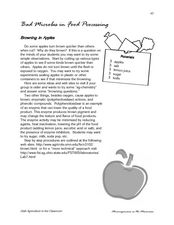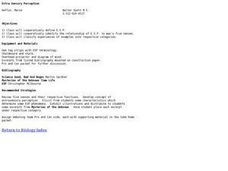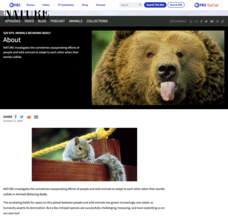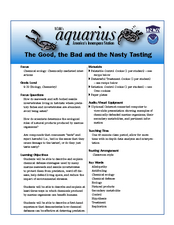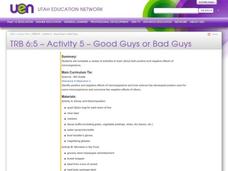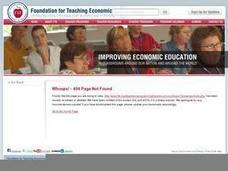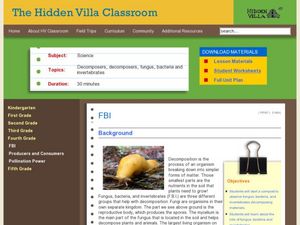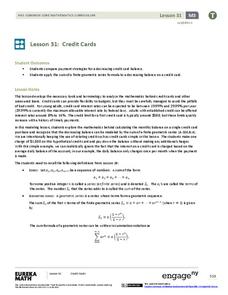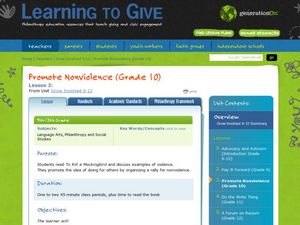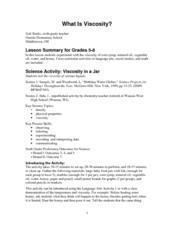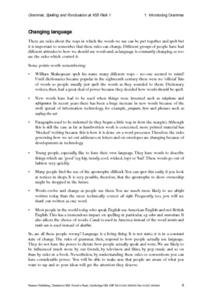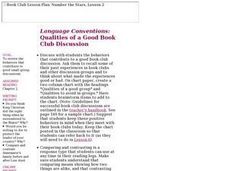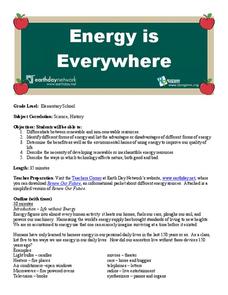Alabama Learning Exchange
Good Litter, Bad Litter
Which ones can be thrown on the ground? Discover the difference between natural litter and unhealthy trash, helping scholars by using several examples. Use the information here to give them a basic background, but also encourage prior...
Curated OER
What's So Bad or Good About Conflict?
Learners of all ages discuss how conflict can be negative and positive. First, they create a class bulletin board about conflict, and provide their thoughts and connotations surrounding the word. In a class discussion, they ask questions...
Curated OER
Bad Microbes in Food Processing
Students complete an experiment to determine if there are bad microbes in food processing.In this bad microbe experiment, students use apples to see how they react to oxygen. Students test apples with chemicals to observe the changes.
Curated OER
Who's Afraid of the Big, Bad Wolf?
Students compare wolves' behaviors to those of the human race. In this wolf lesson plan students write a story that will show that wolves are either good or evil.
Curated OER
Extra Sensory Perception
Students define extra sensory perception. In this science lesson plan, students identify the relationship of E.S.P. to man's five senses and classify experiences of examples into respective categories.
Curated OER
Animals and People: Who's Behaving Badly?
Young scholars explore the relationship between human beings and animals. They participate in a variety of activities to examine animal behavior. Students create a class book and stage a mock news broadcast.
Kenan Fellows
How Does an Unhealthy Diet Influence our Health and Well-Being?
You are what you eat, or so they say! After surveying family and friends on a week of eating habits, learners analyze the data for patterns. They compare different variables such as fats and cost, fats and calories, or fats and LDLs.
Curated OER
The Good, the Bad and the Nasty Tasting
Students examine the effect of chemicals from marine plants or animals on predator's preferences. In this ecology lesson, students conduct taste tests and collect necessary data. They write their conclusion after analyzing...
Curated OER
Good Guys or Bad Guys
Sixth graders complete a variety of activities to explore both positive and negative effects of microorganisms. They, in groups, engage in a series of experiments which illustrate the effects of certain molds.
Curated OER
Yeast Power!
Students examine how not all microorganisms are bad and that some can actually be beneficial. In this yeast lesson students complete an experiment with yeast and answer questions.
Curated OER
Life with Energy
Students identify forms of energy and the advantages/disadvantages of different forms of energy. They describe ways in which technology affects the environment both good and bad. Finally, benefits are determines as well as the...
Curated OER
A Proper Role for Government - Seeking Perfection in an Imperfect World
Pupils discuss the proper role of government in the economy. Reviewing the foundations for a market economy to work properly, they decide how to best direct resources to get the most out of them. They distinguish between private and...
Curated OER
FBI
Fourth graders experiment with compost. In this Science instructional activity, 4th graders begin a worm compost as well as an outdoor compost. Students discuss decomposition.
EngageNY
Credit Cards
Teach adolescents to use credit responsibly. The 32nd installment of a 35-part module covers how to calculate credit card payments using a geometric series. It teaches terminology and concepts necessary to understand credit card debt.
Curated OER
Promote Nonviolence
Take a look at the topic of violence as seen in Harper Lee's To Kill a Mockingbird. Discuss together the values that Atticus holds and brainstorm ways to combat violence in a similar manner to what he portrays in the novel. Get your...
Curated OER
What Is Viscosity?
Students experiment with the visocosity of corn syrup, mineral oil, vegetable oil, water, and honey. They research viscosity before beginning. Pupils draw the conclusion that the marble sinks more slowly in the liquids with greater...
Curated OER
Inventions: The Impact
Students recognize that inventions are developed to fill a need.In this inventions lesson, students become familiar with the inventing process and create simple inventions. Students complete a worksheet about their inventions.
Curated OER
Impact of Inventors
Students examine the impact of inventors on our world. In this science lesson plan, students are given a time line of the invention of familiar objects. Students then evaluate some kid inventors and decide...
Curated OER
Introducing Grammar: Grammar, Spelling, and Punctuation
Focusing on correct grammar usasge as well as the concept of language evolution, this conventions lesson prompts middle and high schoolers to examine the structure of sentences and word classes (parts of speech). Use the three activites...
Curated OER
Dalai Lama Peace and Conflict Resolution
Learners explore philosophy by researching the Dalai Lama. In this peaceful living lesson plan, students discuss the Dalai Lama and his unique views of the world before reading the story Can You Say Peace? Learners answer study questions...
Curated OER
Hazardous Waste Issues in the News
Students work together to research hazardous waste in the news. They discover how large the hazardous waste issue is. They complete an experiment and discuss how the issues affect their community.
Curated OER
Number the Stars, Lesson 2
Young scholars discuss the qualities of a good book club. They explore the behaviors that contribute to a good book club discussion. Also, they compare/contrast a response type that could be used any time in their reading logs.
Curated OER
Energy is Everywhere
Young scholars differentiate between renewable and non-renewable resources and identify the different forms of energy and list the advantages or disadvantages of different forms of energy. They also determine the benefits as well as the...
Curated OER
A Biblical Perspective
Students analyze money using a Biblical and business perspective. In this algebra lesson, students define their money relationship biblically and in a business fashion. They compare their view with the view of someone in the Gold Rush days.
Other popular searches
- Bad Grammar Examples
- Examples of Bad Citizenship
- Examples of Bad Characters
- Examples of Bad Lesson Plans


